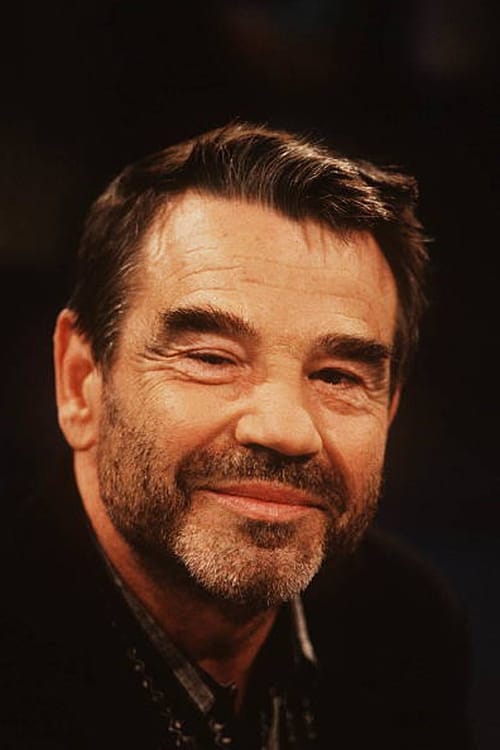Hilmar Thate
Birth : 1931-04-17, Dölau, Germany
Death : 2016-09-14
History
Hilmar Thate (1931–2016) was one of the most important stage actors in Germany. He also gained national and international recognition through impressive roles in film and television.

Hans Broch
Berlin during the Nazi reign: Young music student Ursula is a talented musician and a fervent admirer of the "Führer". When she is asked to assist renowned composer Broch, who was ordered to compose a cantata for Hitler′s 50th birthday, it first seems like a dream fulfilled. Over the time, Broch and Ursula fall in love, and her relationship with the former communist gradually changes Ursula′s perspective on the realities of Nazi Germany. But falling in love with a Nazi means a huge moral conflict for Broch.
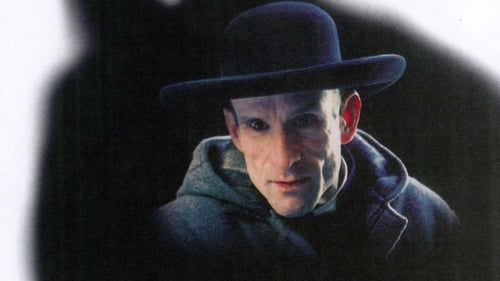
Bischof Philippe
A drama loosely based on Jean Bernard's Nazi-era prison diary.

Kommissar Otto Konrad

Richard Wolf

Cäsar Klein
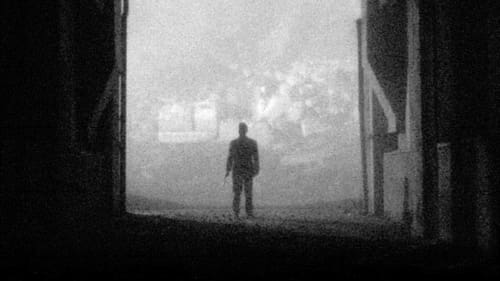
Walter
Set against the backdrop of post-unification Germany, the film explores the breakdown of relations in a decaying social structure.

Narrator (voice)
George Grosz, born on July 26th in Berlin, vicious draftsman and painter of the face of the ruling class, enfant terrible of the 1920s, accused of pornography and blasphemy, was one of the most popular visual artists of the Weimar Republic. Little is known, however, that Grosz spent half of his artistically productive life in the USA before returning to Berlin in 1959.

Hager

Mr.Ruben

Sganarelle

Georg
The emotional story of an adulterous relationship between a journalist and a teacher.

Paul Neumann
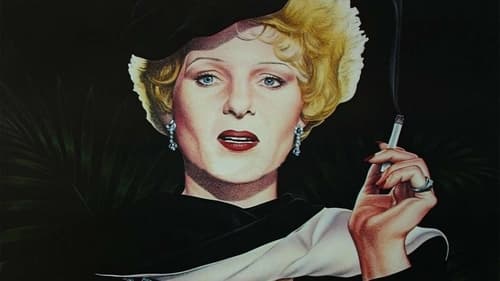
Robert Krohn
In Munich 1955, German film star Veronika Voss becomes a drug addict at the mercy of corrupt Dr. Marianne Katz, who keeps her supplied with morphine. After meeting sports writer Robert Krohn, Veronika begins to dream of a return to stardom. As the couple's relationship escalates in intensity, Veronika begins seriously planning her return to the screen -- only to realize how debilitated she has become through her drug habit.

Jens
A divorced woman tries to restart her life.
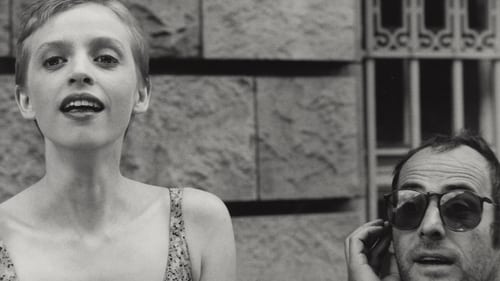
Gustav Völpel
The subject of this historical drama is a splintering Berlin in the years of 1948 and 1949. Played against the backdrop of social upheaval, the characters in the drama come to epitomize the best and worst of each pole of the political sphere. A 17-year-old hoodlum by the name of Gladow works hand-in-glove with a local white-collar criminal to rob and pillage every day and night, defying capture. While he and his gang of thugs are terrorizing the people of Berlin, the Soviets are trying to make the blockade of their region of control impermeable. The future casts long shadows over the drama, as Berlin's problems take the shape of times to come.

In a backwater town, opera director Andrej Wischnewsky is supposed to put on a production of Mozart's "Don Giovanni".

Philipp Pommeranz

Robert Steiger

Daniel Druskat
The five-part feature, based on the novel by Helmut Sakowski, focuses on the friendly but also rival relationship between Druskat and the self-righteous Max Stephan, an old pal with different attitudes towards life and socialism . Druskat came to Mecklenburg as a refugee after World War II, became an integral part of the community, but also repeatedly caused a stir. Since the death of his wife he lives only with his daughter Anja, although there were enough women who wanted to be with him. Now he´s chairman of the LPG, the "volutary" federation for agriculture and animal husbandry. One evening, two men from the public prosecutor's office come to pick him up. He seems prepared, but Anja doesn't know why. Her first way leads her to Max Stephan, LPG chairman in the neighboring village. She happened to be there during the last argument between them, Max threatened to literally destroy Daniel. Did he carry out this threat? In conversations with the villagers, she gradually learns the truth.

Eduard
Eduard and Charlotte live an isolated and idyllic life together. But soon Eduard feels that something is missing and he invites his friend Otto to come stay. Charlotte, meanwhile, decides that her foster daughter Ottilie should come live with them. Complex and passionate relationships between the four people begin. Based on Goethe's novel of the same title.

Alexej

(voice)
Tetzlaff's documentary combines historic film footage and photographs with quotes from Kollwitz's diary and images of her sculptures and graphic works, including The Weavers' Revolt (1893-97), The Peasant War (1902-08), Woman with the Dead Child (1903) and War (1922-23), her famous series of seven woodcuts.

Jean Cabet

Self

Wendland
After a breakdown, Rita returns to her childhood village in 1961. As she recovers, she remembers the past two years: her love for the chemist Manfred, ten years her senior; how his enthusiasm about his new chemical process turned to bitter disappointment in the face of official rejection; how he escaped to West Berlin a few weeks before the Wall was built and hoped that she would follow him …
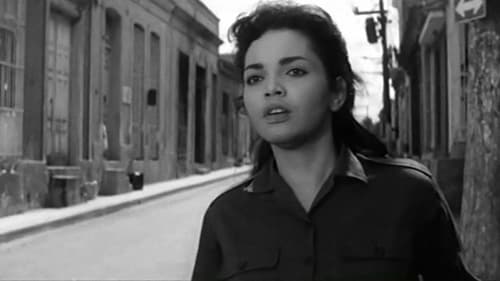
Commandante Suarez (voice)
Daniela – a single mother, whose boyfriend left for the US – believes wholeheartedly in Cuba's revolutionary new order. Meanwhile, in Florida, a plot is afoot. Under the command of an American officer, four Cubans ex-patriots and a Guatemalan land on the Cuban coast to prepare a US invasion of the island. Daniela's superior, the corrupt Cuban officer Palomino, is secretly helping the invaders and the young woman becomes entangled in the intrigue.

Narrator (voice)
Documentary film about the Spanish Civil War.

Hans Schneider

Alexej

KZ-Häftling
Re-enacted true story of successful assault by Nazis, posing as Poles, on a German border radio station so that Hitler could "justify" thereby his invasion of Poland.

Rolf Mamlock
Professor Hans Mamlock is the distinguished chief of surgery in a university hospital. The year is 1933, and although the Professor is Jewish, he remains unconcerned with politics and the growing Nazi threat. Mamlock identifies strongly as a German, and he believes his culture to be simply incapable of the common barbarism associated with the Nazi party. Accordingly, he shows little understanding for people with strong or unpopular political views, such as Walter, a patient, and Rolf, his own son. Indeed, when Rolf joins the communists in resisting the Nazis, Mamlock throws him out of his house. As the persecution of Jews intensifies during the 1930s, Mamlock's own daughter is targeted for anti-Semitic attacks at her school...

During the Thirty Years' War, the camp-follower Anna Fierling, called "Mother Courage", travels the length and breadth of Europe with her covered wagon. She does not care if it's Catholics or Protestants she trades with as long as business thrives. She loses her three children as a result of the war: bold and spirited Eilif, sincere and upright Swiss Cheese and mute Katrin, who saves the children of Halle by beating a drum on a farmstead roof In wartime, the Fierling children's virtues prove to be deadly. Yet, Mother Courage, remains incorrigible. She will not have anyone "spoil the war" for her and so sets out once more after the soldiers with her wagon.

Henne
This film continues the story of radio operator Ludwig Bartuschek from “The Sailor’s Song”. Near the end of the Weimar Republic, Bartuschek (Erwin Geschonneck) is working as a mechanic in the Sperber airplane plant. Director Dehringer offers him the opportunity to train as an airplane constructor if he is willing to give up his communist beliefs under oath. Bartuschek will not allow himself to be bought and instead joins the underground resistance movement.
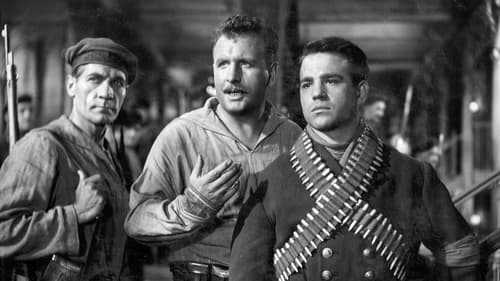
Ludwig Batuschek
A film about the historical uprising of the seamen in Kiel: During the Russian October Revolution of 1917, German and Russian soldiers start to solidarize with each other. By disarming the officers, machinist Henne Lonke and stoker Jens Kasten prevent the attack on a Russian freighter. When German admiralty gives out orders for operation "Nibelungen", which would lead the German fleet into a suicidal attack against England and quell the revolutionary spirit, seamen and soldiers from different political backgrounds unite in protest.

Film by Václav Gajer.
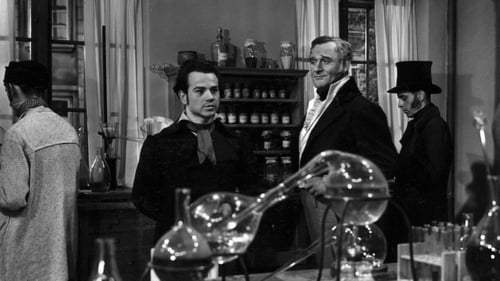
Dr. Bohn

Buhlemann
Actually, the Düsseldorf musician and composer Peter Weselin only wanted to spend his placid vacation with his uncle in the Vogtland village of Klingenthal. But in the city famous for its manufacture of musical instruments, the annual music festival is about to start. For the festival, the accordion factory asks Peter for a large composition for the symphonic orchestra. Furthermore, cute Anna asks him to write a pop song for her youth dance band. Thus, Peter finds no rest during his vacation.

